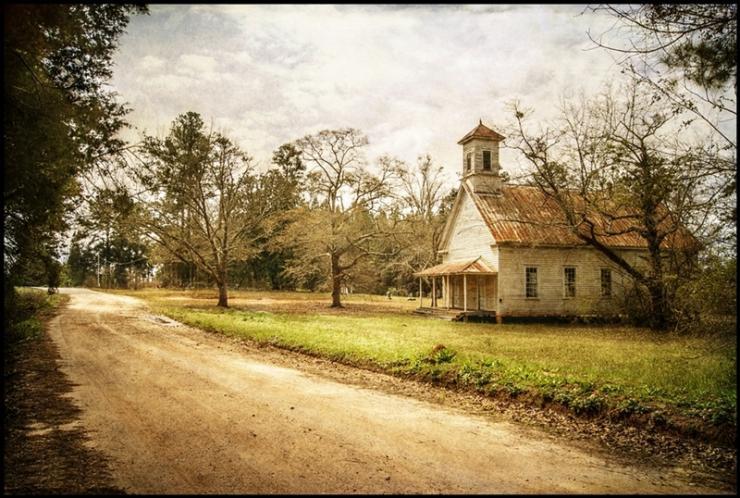Preserving the History of Georgia's Rural Churches
Jul 11, 2019 — Atlanta, GA

Photo courtesy: HRCGA / Scott Farrar
The Institute for People and Technology (IPaT) received an $86,000 grant this week from the National Endowment for the Humanities (NEH) to support The Digital Drawer: A Crowd-Sourced, Curated, Digital Archive Preserving History and Memory. The Digital Drawer project will pilot a platform and method of gathering, curating and disseminating crowd-sourced community memory, initially, the history of Georgia’s rural churches contained in endangered records in private collections dispersed across the state.
The 18-month grant from the NEH’s Digital Humanities Advancement Grants program will fund the design and development of a pilot version of the Digital Drawer platform to gather, curate and disseminate “crowd-sourced” community memory. The goal of the Digital Drawer is to create a methodology and mechanism for collecting and distributing digital collections of rural church histories that will become an international, open-source platform to be used by humanities scholars and the general public to access collections of these historical and often lost voices in our past.
This digital humanities project is unique in that it will be designed to accommodate the usability needs of an anticipated older demographic with disabilities. The platform will be a cloud-hosted media and metadata repository with data sharing service available to the public through their public libraries or partner websites. The archive will be free and accessible for all.
The Digital Drawer will be developed by a collaboration of IPaT’s Interactive Media Technology Center (IMTC) and Emory University’s Center for Digital Scholarship (ECDS), in partnership with Historic Rural Churches of Georgia (HRCGA), Georgia Humanities, Georgia Public Library Service and the Digital Archives of the University of Georgia.
Project director, Scott Robertson (Institute for People and Technology, Georgia Tech) will direct the Digital Drawer project with co-project director, Jesse Karlsberg (Emory Center for Digital Scholarship, Emory University).




